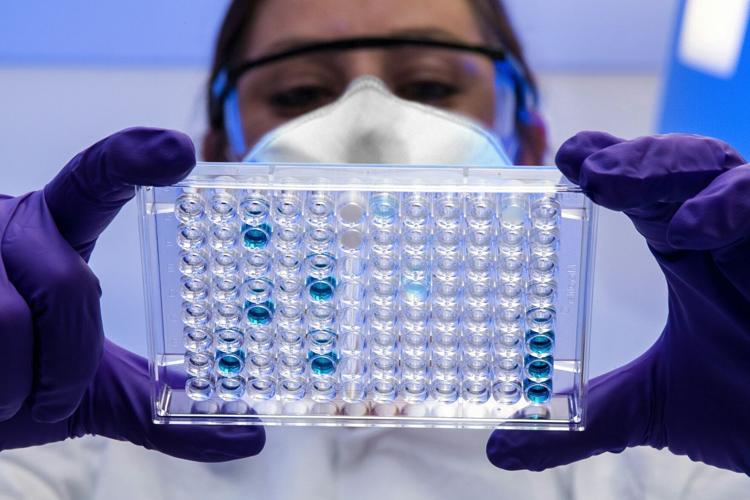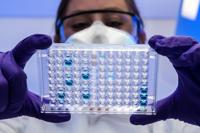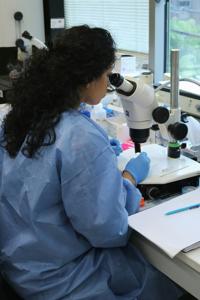
CDC
By Stephen Beech
A new antibiotic to fight the deadly "superbug" C. diff has proved effective in clinical trials.
Treating patients with ibezapolstat provided high rates of "sustained" clinical cures, say American scientists.
As the effectiveness of antibiotics meant to fight Clostridioides difficile, or C. diff, wanes, researchers at the University of Houston saw positive results when testing the antibiotic.
C. diff is the leading cause of death from gastroenteritis in the United States, causing an estimated 453,000 infections yearly and 29,300 deaths.
Rates of C. diff in the UK have increased every year since 2021, reaching 29.5 cases per 100,000 population in England in 2023/2024.
The bacterial infection causes gastrointestinal illness, ranging from diarrhea and abdominal pain to sepsis.

Terren Hurst
Until now, the frontline treatments for C. diff have been the antibiotics vancomycin, with a sustained clinical cure of 42% to 71%, and fidaxomicin at 67%.
But doctors say a superbug would not be so deadly if it were not able to outlive the very medicines meant to destroy it.
Study senior author Professor Kevin Garey said: “Both vanco and fidaxo are associated with emerging antimicrobial resistance. C. difficile infection recurrence is associated with increased mortality, decreased quality of life and higher healthcare costs.
"New antibiotics are urgently needed.”
He says C. diff infections often return when the natural balance in the gut stays disrupted - good bacteria such as Bacillota, Bacteroidota, and Actinomycetota are reduced, while harmful types like Pseudomonadota increase.
Garey says such changes can weaken the gut’s defences, causing a loss of the kind of bacteria that help break down bile acids.
When that happens, harmful bacteria can easily take over.

National Institute of Allergy and Infectious Diseases
Study lead author Dr. Taryn Eubank said: “Ibezapolstat’s mechanism of action helps restore the healthy microbiota that causes C. diff recurrence.”
The findings, published in The Lancet Microbe, show ibezapolstat has a way of working that kills harmful C. diff bacteria without harming the good bacteria in the gut that protect against C. diff infections.
The study was conducted at 15 centers, primarily outpatient clinics and hospitals in the United States.
Participants were aged 18 to 90 with diarrhea and a confirmed diagnosis of mild or moderate C diff infection.
Garey said: “A randomised, double-blind, active-controlled study showed high rates of initial clinical cure in participants treated with ibezapolstat, with no recurrence.
“Ibezapolstat was found to be safe, well tolerated, and was associated with the preservation of key health-promoting bacteria responsible for bile acid homoeostasis, a key component in preventing recurrent C. difficile infection.”
Dr. Eubank added: “This helps confirm the important anti-C diff recurrence properties of Ibezapolstat.”
Garey said: “The findings of our study support further clinical development of ibezapolstat into phase III clinical trials and eventual use in our patients.”









